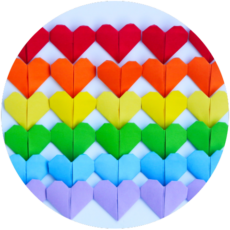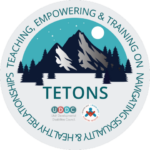

Intersecting Identities and Whole-Person Support
The disability community and the LGBTQ population are both marginalized groups. Belonging to both groups simultaneously can create unique challenges.
A 2024 survey found that LGBTQ+ people are more likely to identify as having a disability than people who are not LGBTQ+. That means many of our friends, family members, or community members may be part of both groups and need extra support.
We also know from research that people who are both LGBTQ+ and disabled are more likely to struggle with mental health, including a higher risk of suicidal thoughts. To best support those who identify as LGBTQ+ and have a disability, we should be aware of these unique experiences and create safe spaces for respect and inclusion.
Support Inclusion
Social inclusion, supportive social relationships, and feelings of belonging are helpful to increase resilience among individuals with intersecting identities. Foster self-determination and meaningful access to social opportunities for your child.
Be Receptive
Be open to listening to your child’s lived experiences without judgment. Validate their experiences and identity. Visit Encircle for resources, peer support groups, and events for LGBTQ adults and youth. This is a nonprofit that can supplement the great work you are already doing as a parent to support your child.
Be Aware
Learn to recognize different forms of abuse and how diverse groups are increasingly targeted. Know that people with disabilities are four times more likely to be victims of violence.
Advocate through allyship
Contribute to or volunteer with organizations that focus on LGBTQ and disability advocacy. Listen, learn, and work together to build environments where all people, regardless of ability, identity, or background, feel safe, valued, and supported.
TETONS
In addition to our other educational tools, the Utah Parent Center offers TETONS, a sexual education course designed for self-advocates with disabilities. The curriculum provides age-appropriate, inclusive information on a range of topics that support healthy decision-making and self-advocacy. While the course is for all individuals, it also includes content relevant to LGBTQ+ identities and experiences through an affirming lens, ensuring that the information reflects the diversity of those we serve.
To best support the professionals and parents who look after this population, we are working on training programs for you, too!
Sign up here to be alerted when these classes become available.







